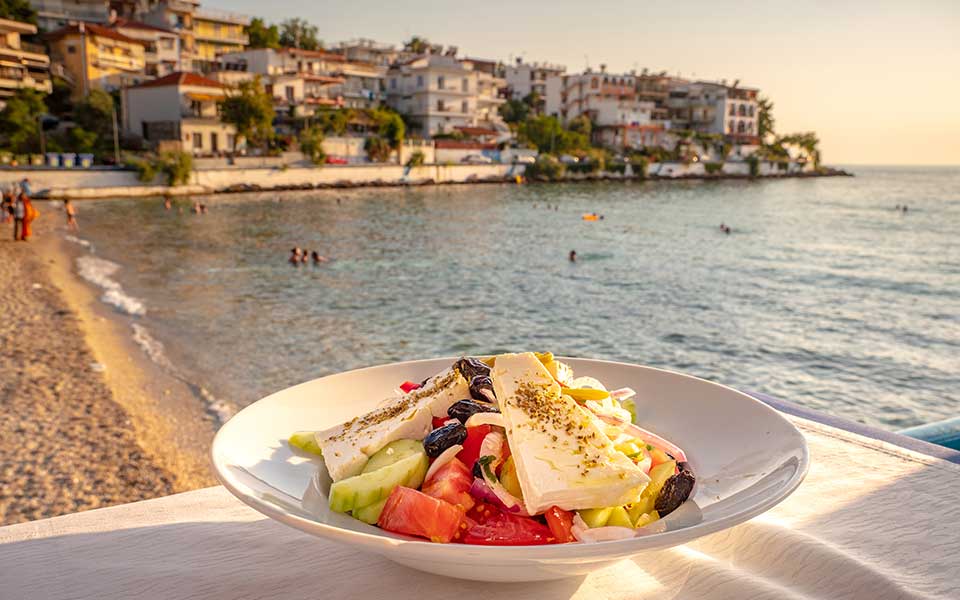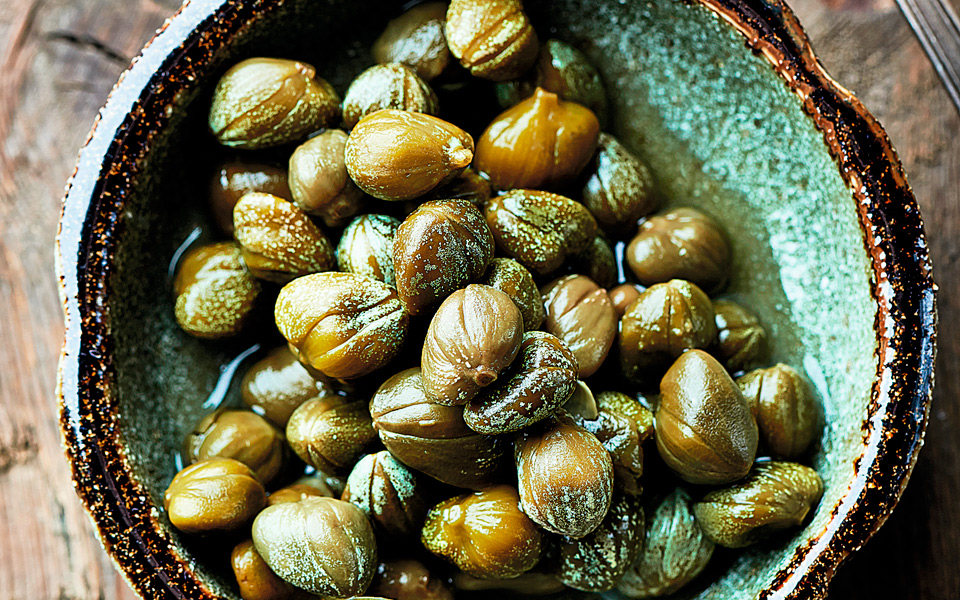Feta, Tsipouro, Sausage… and Off We Go to...
Three traditional products serve as both...

You'd be surprised just how healthy every single one of the ingredients in a Greek salad is!
© Shutterstock
The horiatiki salata (village salad) as it’s known in Greek, is eaten throughout the year but is especially satisfying during summer when tomatoes are juicier and our body calls out mainly for refreshing, raw foods. Here we deconstruct this superfood meal by looking at its ingredients and the many health benefits each of them offers.
The star ingredient of the Greek salad, these fruits originate in south America and first arrived in Greece in the 19th century. Tomatoes are packed with antioxidant-rich vitamin C (one medium-sized tomato offers 40% of a day’s recommended daily amount (RDA) and vitamin K (which helps transport calcium to the bones and boosts energy levels) and minerals such as potassium, which helps preserve nerve health and iron, which helps carry oxygen to the blood.
The onion was considered one of the “foods from the gods” in ancient Greece where the vegetable was both consumed as a fortifying raw or cooked food and used for making powerful antibacterial and antifungal tinctures and poultices by physicians. The allium compound in onions converts to allicin via an enzymatic reaction (when chewed, grated, crushed) and offers multiple benefits such as antiviral, effects. Onions are also rich in vitamin C and the antioxidant flavonoid quercetin, which has been found to have antidiabetic, anti-inflammatory and cancer-preventative effects. Onions are thought to boost immunity, reduce heart ailments and even boost sex drive.
Cucumbers, the most refreshing and hydrating ingredient in Greek salad, have been a part of the Greek diet since ancient times, when it was called síkyon, cucumbers are often thought to have low nutritional value because of their high water content (one medium cucumber contains nearly a cup of fluid!), which isn’t in fact true. Cucumbers are high in vitamin K which helps bone health, contain dozens of antioxidants and flavonoids (which protect the heart) and are even thought to have cancer-preventing properties owing to the cucurbitacin component.
Rich in polyphenols, which are antimicrobial and anti-inflammatory as well as antioxidants, olive oil offers a multitude of benefits, from protecting the heart and mind to regulating blood pressure and the bowel. Greek extra virgin olive oil (EVOO) is the type of olive oil that tends to be the richest in antioxidant-rich polyphenols.

Anti-inflammatory capers are a favorite ingredient in Greek and other salads, as a topping for fava and more.
© Shutterstock
A favorite in Byzantine era Greek cuisine, the caper has a pronounced flavor that can add the right level of vinegary acidity (if pickled) and/or saltiness to any dish, and it certainly gives salads an added dimension. Broadly grown and picked across the Aegean but especially popular in Cycladic cuisine, capers are thought to have several benefits including anti-inflammatory effects, stabilizing blood sugar, having anti-tumor properties and protecting the liver, while the ancient Greeks wisely used them to alleviate rheumatism, something they’re shown to do today. They are also high in fiber, vitamins K, B2, A and iron.
Learn how to make tangy caper relish here.
This potently medicinal herb offers three to 20 times more antioxidant activity than other herbs and is also used in Greece since antiquity for its antifungal, antiviral and antibacterial powers. Its name originates from the words “oros” for mountain and “ganos” for “brilliant joy” as in ancient times is was thought to be beneficial for the body as well as the mind. It was and still is to this date brewed as a tea or concentrated into an essential oil or tincture for treating respiratory ailments and is thought to help prevent cancer.
Olives, one of the country’s most classical symbols together with their tree and oil, are not only low in calories and high in antioxidants but also thought to have several brain-boosting elements: studies have shown they reduce oxidative stress in the brain and that their polyphenols help create maintain, develop and grow brain cells. These anti-inflammatory fruits are also thought to help reduce cancer and heart disease risk, while offering gut-friendly probiotic qualities and fiber.
Three traditional products serve as both...